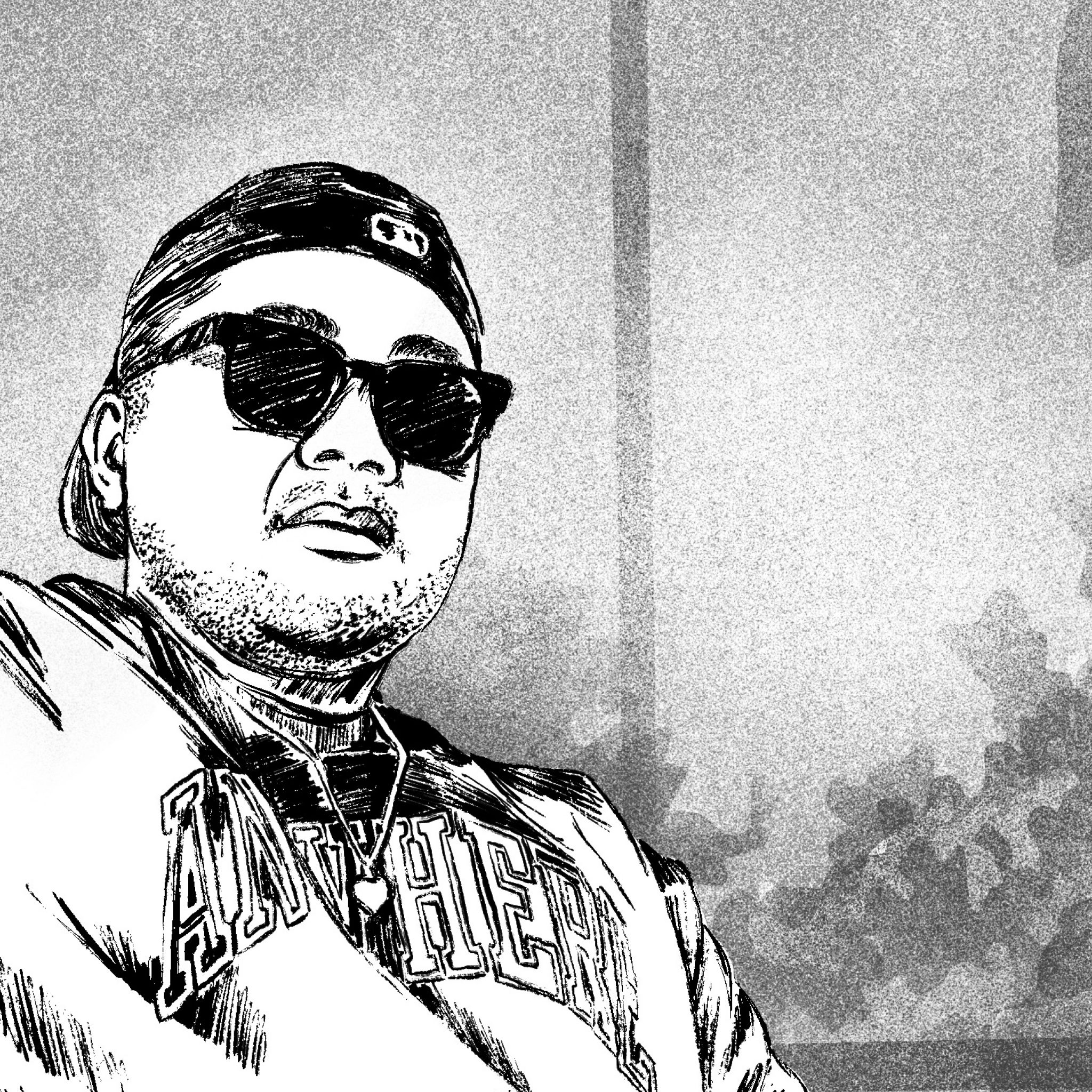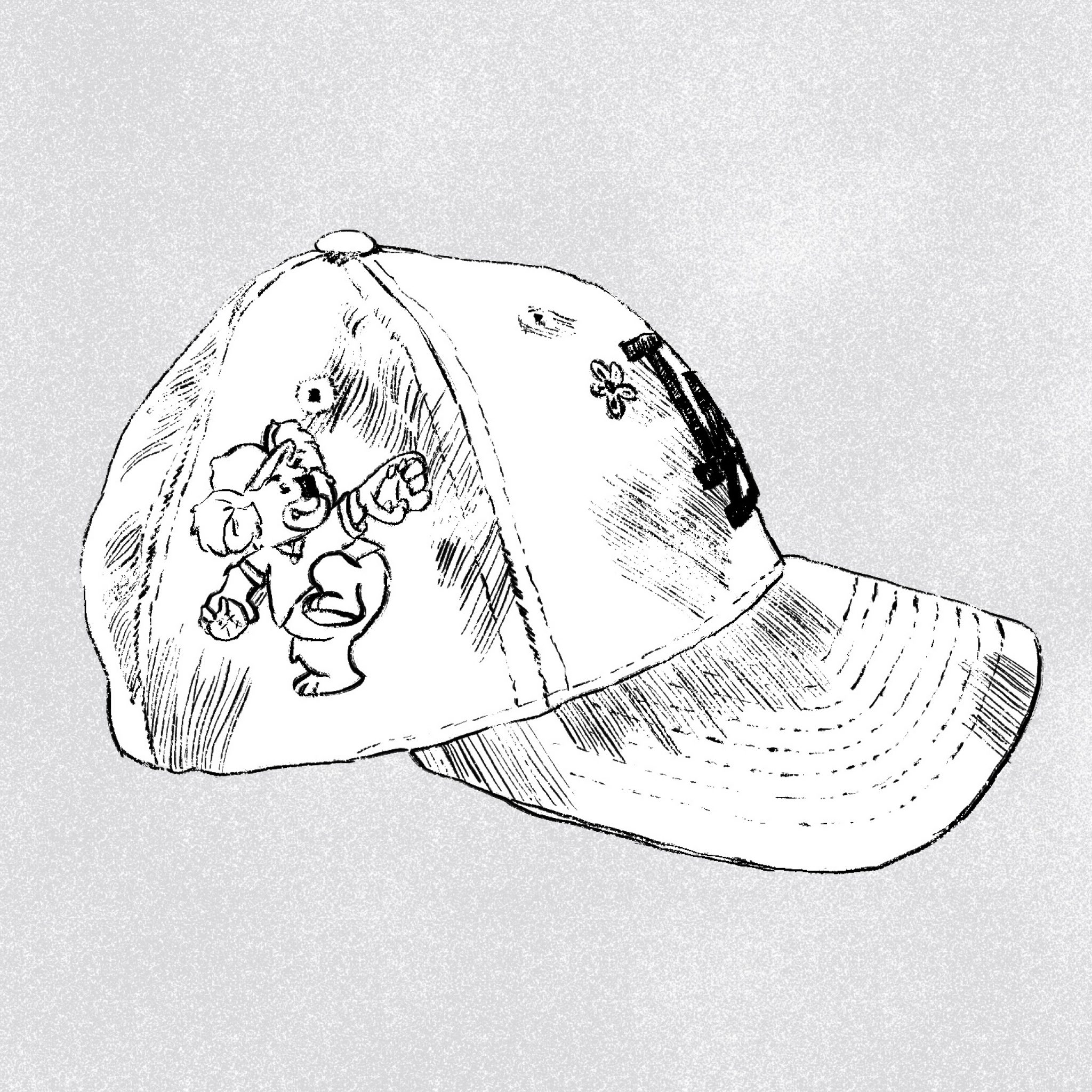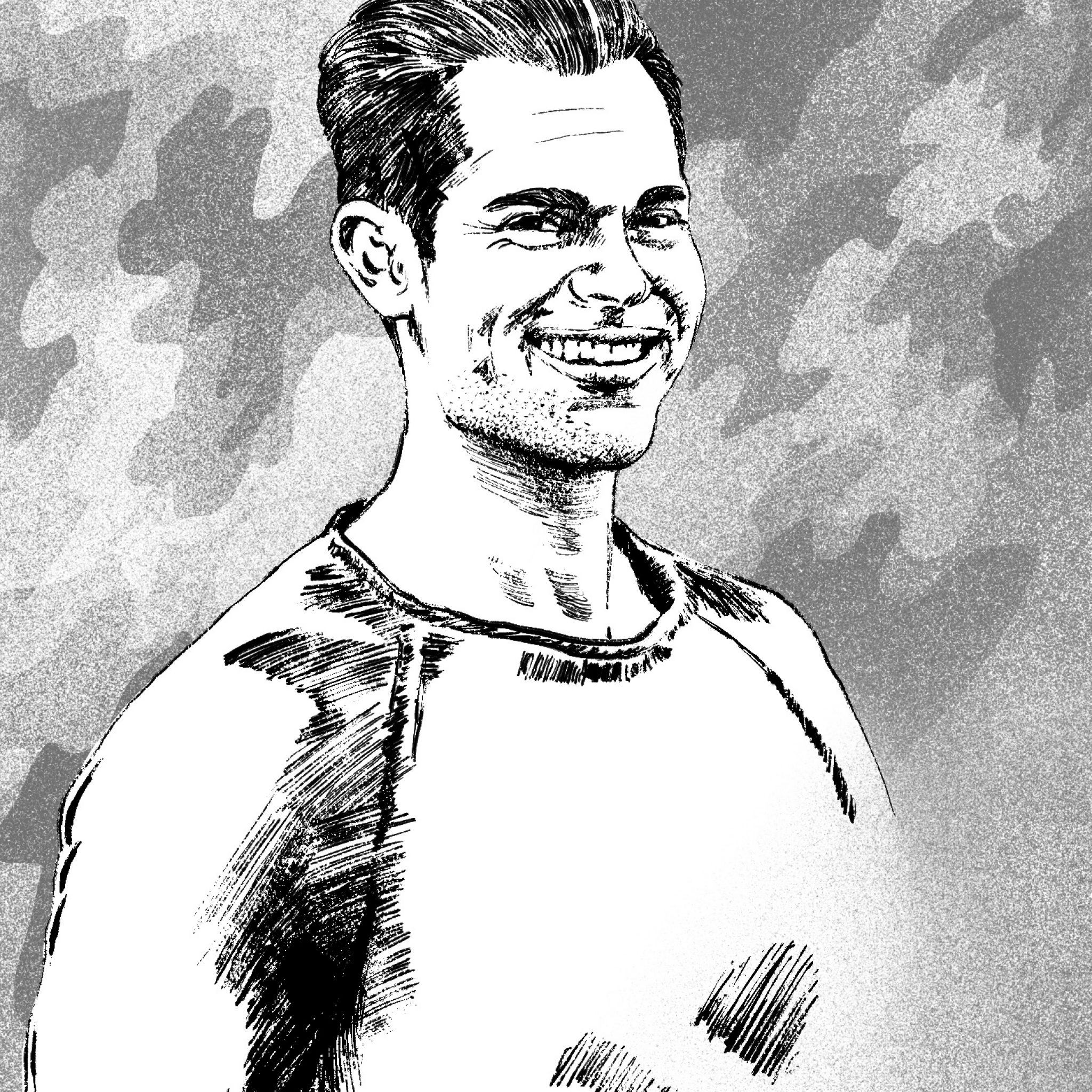Darrell Camara is a marketing creative who, during the pandemic, found he had the time and desire to do more independent creative work. He started playing with embroidery on hats and, through that, wound up getting to know Josh Parker. Josh, whose two day jobs are in brand partnerships and creative marketing, originally commissioned Darrell for a personal piece before working with him on a project for his new venture The Woke Shop, which he started in response to the world being truly fucked. Eugene Kan, co-founder and Editor-in-Chief of MAEKAN, sat down for a chat with Darrell and Josh.
Eugene Kan: What is The Woke Shop?
Josh Parker: It’s a not-for-profit retail platform in which we seek out creative partnerships with different creative individuals to move forwards with consumer projects that we put out in the world with a hundred percent of the proceeds going towards a specific charity or cause of their choice. The Woke Shop exists to raise awareness, advocacy, and resources for causes dedicated to fighting injustice around the world.
It’s not about any single cause. There’s not a lack of things that are fucked in this world. So what I want to do is to be a social agitator, intentionally looking for and reaching out to creatives to see if they want to donate their art on behalf of a cause that’s important to them. My goal is to have infrastructure ready for them to be able to dedicate their creative project without there being a lot of headache for them.
One of the things that inspired me last year was the Brain Dead and Dev Hynes t-shirt that raised half a million dollars for BLM. I saw that and thought, “Oh my God, this could actually work.” If we get people’s eyeballs onto products that they’re into, we could raise money for all kinds of things.
When we were looking for creative partners to help bring the platform to life, I thought that if Darrell had a cause he cared about there was an opportunity to raise money for something that was important to him. His work has been our most successful project since we’ve launched and we raised quite a bit for his project.
Eugene: Darrell, what type of work do you create and what kind of work do you want to be known for?
Darrell Camara: Josh brought up that great example of Brain Dead raising over $500,000 for charity from selling a t-shirt. What I learned from that is to be increasingly skeptical of brands that continue to pump out new products… for what exactly? Just for revenue and to keep being rich?
So to answer your question, the work I want to do is the kind where I’m able to flex this creative muscle that I have in a way where I’m aware of how I’m using my resources. I’m in the midst of considering doing pre-orders and using that kind of business model, opposed to printing out fifty t-shirts, but none of them sell. Especially with how the world is turning out to be right now, I basically just want to create things that resonate with people, and that’s why I started Anywhere. Anywhere was created on a feeling.
During the pandemic I saw how people reacted towards this virus, as things started to open up, people were over it and saying, “Fuck it. I’m gonna go out and do whatever I want.” But it’s inconsiderate when people have lost family members and close friends because of this thing that people don’t want to believe in.
So I wanted to create things that people would have a strong affinity to and therefore be able to express their feelings just through either a t-shirt or a hat. ‘Cause let’s face it, It’s kind of hard to speak. It’s hard to have these kinds of conversations with people, but if you’re wearing a t-shirt, someone might say, “Oh, I like that shirt.” And that gets the ball rolling.

Darrell Camara
“Neither of us are here to see how much money we can make. There are bigger issues that we’re addressing and as long as we can help subside them in any kind of way, why wouldn’t we?”
Eugene: The spaces you two have worked in and are familiar with lean heavily on consumerism and capitalism. Does The Woke Shop and getting yourself involved in this initiative kind of balance out or bring some sort of clarity to the day job?
Josh: I think all three of us come from the same world where we traffic in “cool”. “Cool” is the currency that brands want to attach themselves to and sell to kids. And it’s only for the benefit of that specific brand or company. You’ll see some brands give 10% to charities or make small donations, but what if there were things out there in the world that were a hundred percent altruistic? And what if we did these things not for our own benefit, but because we are a part of this world and we’re trying to continue to push things forward? What if things weren’t always about creating a new t-shirt line for fame and fortune?
Coming out of this year where everybody sat at home and thought, “Oh shit, I want to make a new brand”, I find the lack of social responsibility across the board is a little disappointing. I’m putting a lightning bolt out there to see who else is interested in this type of work, finding anybody who wants to do a project where a hundred percent of the proceeds go to charity—we have the infrastructure and we’re doing it.
With Darrell’s project, we raised $450 for the Play Equity Fund, which I think is pretty good considering that it’s more than I personally feel comfortable donating. That’s my success barometer—if we can do any of these projects and give more than I might feel comfortable donating myself, then let’s continue to do it.
Eugene: For sure. One thing that I think is worth addressing is the current connotation behind “woke”, which can have a negative sense to it. How do you manage that? There’s a positive meaning where people are aware of and attentive to societal issues, but it can also be wokeness to the point where you’re “woke” for the sake of demonstrating superiority over others. Does the definition of the word affect what you’re doing?
Josh: That’s a great point. I’m working with a couple buddies on this project, John and Hagop, and we were talking about the idea for this platform before we had the name. We threw a bunch of stuff against the wall and we didn’t like anything. We coalesced around “The Woke Shop” because at least it’s memorable.
Then over the past twelve months or so that term, especially in the political context in America, has definitely taken many, many shapes. On both sides of the spectrum you find people who claim to be woke. But what it represents to me is being aware of institutional power—who is being taken advantage of and who benefits from it. That’s what it boils down to for me and that’s where I think the starting point is for change and action.
I understand how the word “woke” gets manipulated. Still, as a name, it’s something that’s hard to forget and it’s a little prickly, enough to make people think, “Hmm, what’s this all about?”
Darrell: It’s all about intentions. Neither of us are here to see how much money we can make. There are bigger issues that we’re addressing and as long as we can help subside them in any kind of way, why wouldn’t we?
Josh: I agree. I don’t feel any shame towards being “woke”. There is no shame in wanting women’s rights and open borders and more equality and opportunities for people in schools and jobs. These are issues that plague our society, so we should be aware of them and not be asleep. The word is definitely given a negative connotation, but I think the people who do so are the same people who just want things to stay the same.

A former mascot for a Dodgers fan club in the eighties

Camara LA Dodgers Hat, 6 panel snapback with custom embroidery
Eugene: Those are great answers. I think a lot of the things that you two want to push forward are more intangible—it’s a psychology, it’s a mindset, it’s education. What role does product play in that? Looking at early releases for The Woke Shop, I see there being a human connection to Darrell’s work, a custom Dodgers hat, that is part of the everyday fabric of life. How can physical products be vehicles for storytelling?
Darrell: I feel like anything that I want to create has to serve a purpose. I’m going to go ahead and try and make items benefit your everyday life. As cliche as it sounds, a t-shirt or hat that you choose depending on how you’re feeling can really affect how you are that day. I just want to be able to create things that people will gravitate towards, because, at the end of the day, none of this shit really matters as long as we’re healthy and we have our loved ones with us.
Josh: With The Woke Shop, we’re trying to make these tokens for donation. If you look at the price point for any of these items, we take into consideration the margin. So doing anything that would be high in labor cost or cost of materials would be tough. Things like t-shirts, prints, hats, these are things that we can garner a higher margin with and make the project more worth it for the specific cause.
Darrell’s project in particular has an interesting link between the product and the benefiting entity. We’d love to continue to do more projects like that.
Eugene: Darrell gave this great quote for The Woke Shop about the charity he chose to benefit, “Sports plays an important role in my life as aside from developing skills and exercise, sports have indirectly taught me the importance of teamwork, discipline, and resiliency which I’ve applied in my professional career.” Can you speak a bit more about the role of sports in your life?
Darrell: I played tennis growing up and for a community college during my freshman year. Our record was literally one win in 17 losses. Even though our record didn’t show it, that was the most fun that we as a team ever had. I’m still really close with my coach back in San Diego and, to this day, even though he’s won big tournaments, he says he always remembers moments from that season. This might sound like a loser’s mentality when I say this, but winning really isn’t everything. The experiences and learnings that you have while playing sports is the bigger picture.
I chose Play Equity Fund to donate all proceeds to benefit youth. They’re an organization that focuses on helping the youth grow, explore, play, and achieve their potential regardless of their race, gender, zip code, or socioeconomic status through the power of sports. They focus on underserved communities and that’s important to me because you can learn so much through sport and every kid deserves that.
I remember my dad threw me into tennis lessons as a kid, ‘cause I only wanted to play with him. I was so against playing with anyone else, because I was in my own bubble and I’d cry out of shyness. He pushed me to play and that changed things for me. All of this to say that I wanted to donate to Play Equity Fund so that kids who are like how I was have those opportunities to play, learn sports, and hopefully gain other experiences.
“I don’t feel any shame towards being “woke”. There is no shame in wanting women’s rights and open borders and more equality and opportunities for people in schools and jobs.”

Josh Parker
Eugene: Josh, what has been the most challenging aspect of getting The Woke Shop going?
Josh: Securing partnerships, which is challenging in any sort of sales and outreach job. Our close rate is probably around 20%. There’s no real financial gain for the participants, the artists and creatives. We try to take away a lot of the burden in terms of production with regard to prints, but in Darrell’s case with the hats, he still has labor to do and he fulfilled his shipments too. That’s a lot of time spent on materials and labor, so I think for some creatives it’s not worth their time. People are very busy already.
Promotion has also been very difficult. Instagram and Facebook restrict paid promotions for any causes, political or otherwise. So some of our promotions have been rejected by Instagram.
Eugene: It’s still early in the timelines of what you each are doing. Do you two feel there’s still room for play and experimentation or do you have clear cut visions as to what you want to achieve with your respective work?
Darrell: I’m still trying to figure shit out to be quite honest with you. I sometimes feel like I’m in this creative rut, thinking, “Now what’s next?” I don’t want to silo myself into being the hat guy, but that’s been showing the most success. It’s all a learning experience, so I’m trying to enjoy it for what it is, riding this momentum that I’ve had so far, and taking the next step into trying something new. Shorts, beach towels, totes, trying to experiment with different things, and coming up with creative rollouts.
Eugene: What about you, Josh?
Josh: We’re open to taking on any project where we can get a 50% margin going towards a specific charity. That could be a beach towel, a water bottle, something spray painted, something one-of-one, home goods, like plates or ashtrays or vintage. Once it gets a little more successful and notable, I’d love for The Woke Shop to be a place creatives consider for experimentation, knowing that their first run of this project is going to go to charity and it can become a commercial effort afterwards.
Eugene: My last question for you, Josh. What does it mean to you personally when people donate their time to this initiative?
Josh: It’s the biggest win other than sending money to the charities. I feel extremely grateful for their participation and the success of this is entirely dependent on the creators: Darrell and Alex and Karl and Magda and Sammy and Kellen and Jorge. They all chose to donate their talents to this, helping a cause that’s important to them and making that known.
Eugene: And Darrell, what does it mean to you to have your work shown on this type of platform with a charitable cause in mind?
Darrell: I was really floored that Josh reached out with the opportunity and it meant a lot for me, because it showed that what I’m doing right now is working. Also, knowing what it stands for—100% of proceeds to charity—whenever and however I can help, I’m gonna help. We’re trying to create some kind of change in the world.



























